BAE Systems
- Details
- Written by BUSINESS WIRE
- Category: BAE Systems
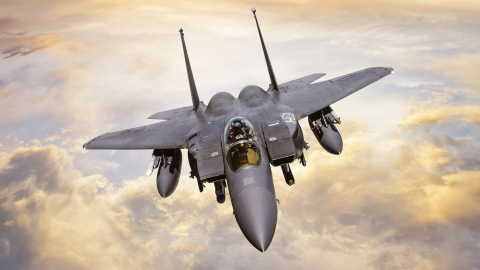 BAE Systems has received a $58 million contract from Boeing to start Low Rate Initial Production (LRIP) of the F-15 Eagle Passive Active Warning and Survivability System (EPAWSS) for the U.S. Air Force. The electronic warfare (EW) and countermeasures system provides advanced electromagnetic capabilities that protect pilots and help them maintain air superiority during their toughest missions.
BAE Systems has received a $58 million contract from Boeing to start Low Rate Initial Production (LRIP) of the F-15 Eagle Passive Active Warning and Survivability System (EPAWSS) for the U.S. Air Force. The electronic warfare (EW) and countermeasures system provides advanced electromagnetic capabilities that protect pilots and help them maintain air superiority during their toughest missions.
- Details
- Written by BUSINESS WIRE
- Category: BAE Systems
 BAE Systems received a $247 million contract from the U.S. Space Force’s Space and Missile Systems Center to design and manufacture an advanced military GPS receiver and next-generation semiconductor. The technology will provide positioning, navigation, and timing (PNT) capabilities to warfighters so they can execute missions in challenging electromagnetic environments.
BAE Systems received a $247 million contract from the U.S. Space Force’s Space and Missile Systems Center to design and manufacture an advanced military GPS receiver and next-generation semiconductor. The technology will provide positioning, navigation, and timing (PNT) capabilities to warfighters so they can execute missions in challenging electromagnetic environments.
- Details
- Written by Megan Eckstein
- Category: BAE Systems
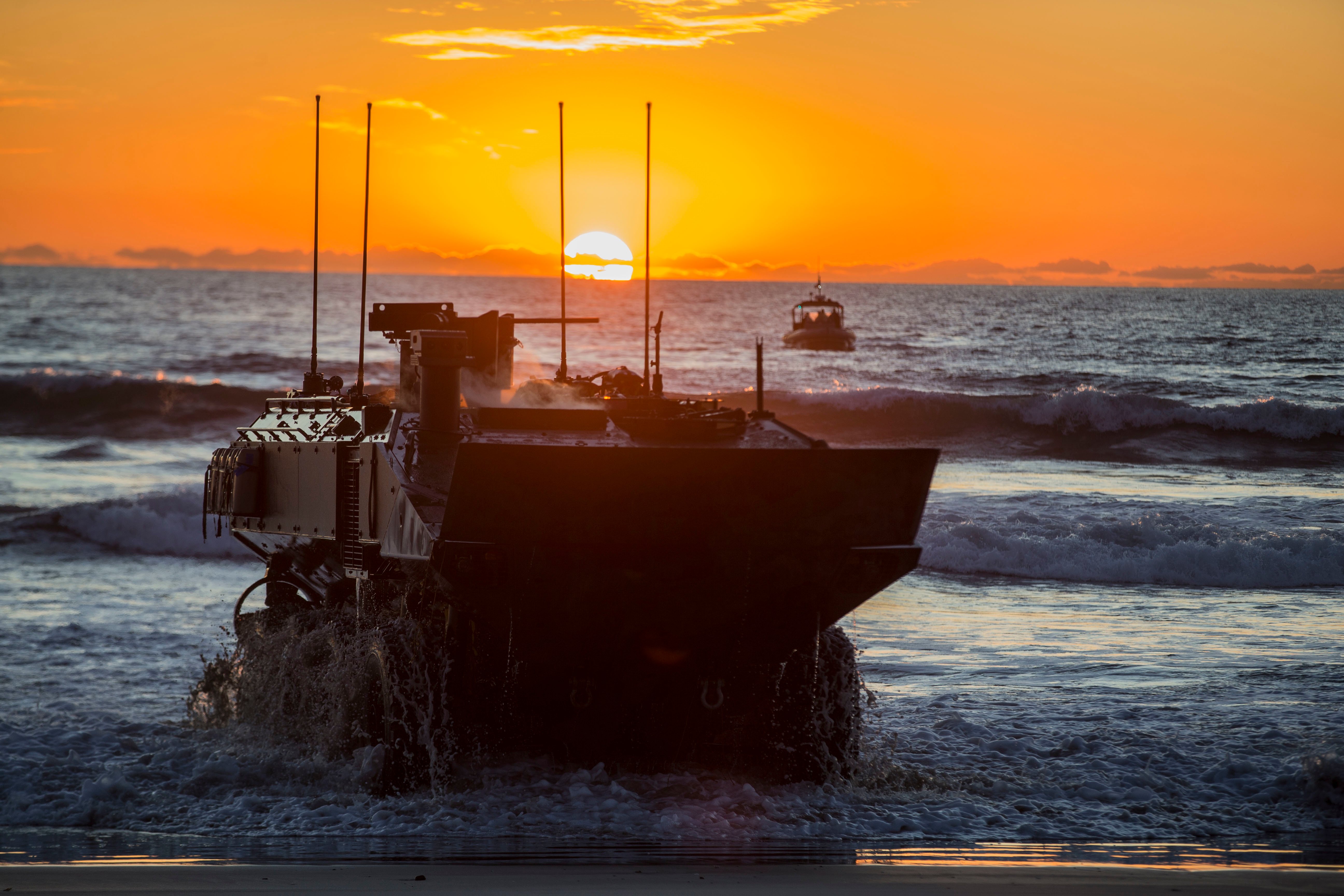 The Marine Corps this week awarded BAE Systems $184 million for 36 additional Amphibious Combat Vehicles, the company announced today. The award was made as a contract option to the full-rate production contract signed in December. This option brings the total number of vehicles under full-rate production to 72, for a total value of $366 million, according to the news release.
The Marine Corps this week awarded BAE Systems $184 million for 36 additional Amphibious Combat Vehicles, the company announced today. The award was made as a contract option to the full-rate production contract signed in December. This option brings the total number of vehicles under full-rate production to 72, for a total value of $366 million, according to the news release.
- Details
- Written by Colton Jones
- Category: BAE Systems
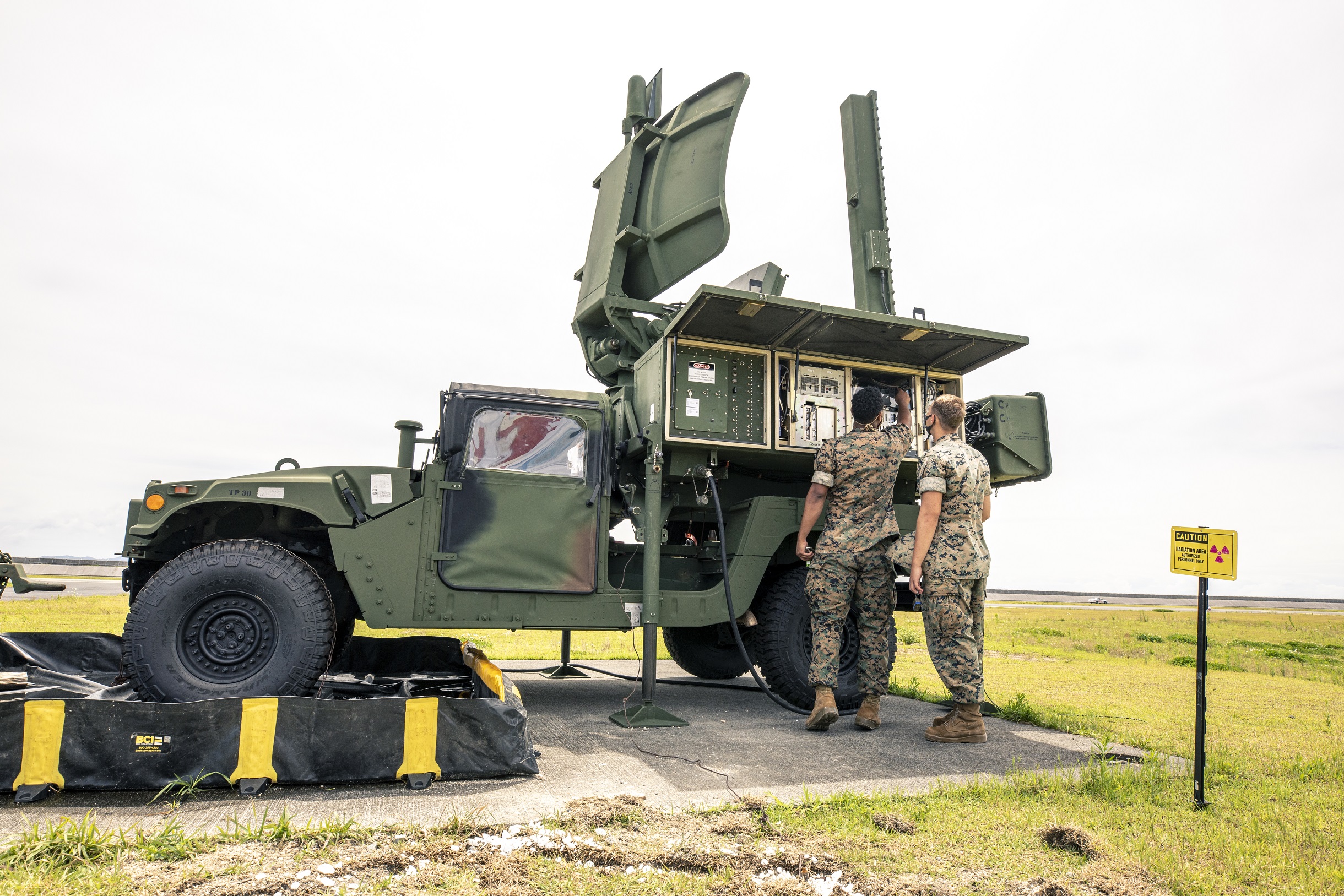 The U.S. Navy has awarded the BAE Systems a contract to sustain Air Traffic Control systems that provides air traffic control services at expeditionary airfields and landing sites. According to a company news release, BAE Systems will provide lifecycle, engineering, and sustainment support to ensure precision approaches and further enhance the safety of America’s warfighters.
The U.S. Navy has awarded the BAE Systems a contract to sustain Air Traffic Control systems that provides air traffic control services at expeditionary airfields and landing sites. According to a company news release, BAE Systems will provide lifecycle, engineering, and sustainment support to ensure precision approaches and further enhance the safety of America’s warfighters.
- Details
- Written by India Education Diary
- Category: BAE Systems
 The global defence, aerospace and security company, BAE Systems, will exhibit a number of its world-leading capabilities, alongside its commitment to Make in India, at next week’s Aero India, taking place from 3-5 February in Bengaluru. The global defence, aerospace and security company, BAE Systems, will exhibit a number of its world-leading capabilities, alongside its commitment to Make in India, at next week’s Aero India.
The global defence, aerospace and security company, BAE Systems, will exhibit a number of its world-leading capabilities, alongside its commitment to Make in India, at next week’s Aero India, taking place from 3-5 February in Bengaluru. The global defence, aerospace and security company, BAE Systems, will exhibit a number of its world-leading capabilities, alongside its commitment to Make in India, at next week’s Aero India.
- Details
- Written by John Keller
- Category: BAE Systems
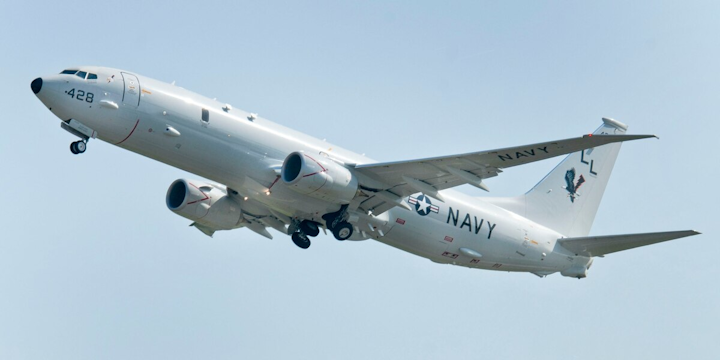 BAE Systems received a $4 million contract from the Navy for a quick-turnaround demonstration of a new radio frequency countermeasure system for the P-8A Poseidon aircraft. The system will be a lightweight pod mounted to the aircraft that will add a new self-protection capability to the Poseidon, the company said in a Jan. 5 announcement.
BAE Systems received a $4 million contract from the Navy for a quick-turnaround demonstration of a new radio frequency countermeasure system for the P-8A Poseidon aircraft. The system will be a lightweight pod mounted to the aircraft that will add a new self-protection capability to the Poseidon, the company said in a Jan. 5 announcement.
- Details
- Written by BUSINESS WIRE
- Category: BAE Systems
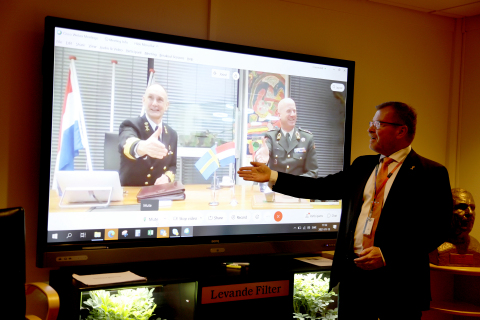 BAE Systems has signed an extensive mid-life upgrade contract worth more than $500 million with the Dutch Defence Materiel Organization (DMO) for the Royal Netherlands Army’s fleet of 122 CV90s, with an option for an additional 19 vehicles. The upgrade program with a new turret will vastly improve the vehicle’s capabilities while providing crews with improved protection and ergonomics for increased combat efficiency.
BAE Systems has signed an extensive mid-life upgrade contract worth more than $500 million with the Dutch Defence Materiel Organization (DMO) for the Royal Netherlands Army’s fleet of 122 CV90s, with an option for an additional 19 vehicles. The upgrade program with a new turret will vastly improve the vehicle’s capabilities while providing crews with improved protection and ergonomics for increased combat efficiency.
- Details
- Written by Defence View
- Category: BAE Systems
 The contract has a total value of over 4 million USD, the time to complete the contract is 2 years from the time it was officially signed, BAE said on January 5. With the above money, it is not clear how many systems will be delivered. According to some information disclosed by BAE, the AN / ALE-55 is capable of accurately replicating the aircraft’s flight path and radar reflection in order to deceive all missiles using heat probes or radar.
The contract has a total value of over 4 million USD, the time to complete the contract is 2 years from the time it was officially signed, BAE said on January 5. With the above money, it is not clear how many systems will be delivered. According to some information disclosed by BAE, the AN / ALE-55 is capable of accurately replicating the aircraft’s flight path and radar reflection in order to deceive all missiles using heat probes or radar.
- Details
- Written by Philip Athey
- Category: BAE Systems
/cloudfront-us-east-1.images.arcpublishing.com/mco/JK7MPN53HBFAVJ27QOYD544HPY.jpg) In November 2020, Delta Company, 3rd Assault Amphibian Battalion, based out of Twentynine Palms, California, received the Marine Corps’ first amphibious combat vehicle. In 2021 more units will start to receive the ACV, destined to completely replace the Vietnam-era amphibious assault vehicle. The next lot of ACVs is expected to hit the fleet in January or February, with a new shipment being received by Marine units every two or three months after that, Marine Corps Times previously reported.
In November 2020, Delta Company, 3rd Assault Amphibian Battalion, based out of Twentynine Palms, California, received the Marine Corps’ first amphibious combat vehicle. In 2021 more units will start to receive the ACV, destined to completely replace the Vietnam-era amphibious assault vehicle. The next lot of ACVs is expected to hit the fleet in January or February, with a new shipment being received by Marine units every two or three months after that, Marine Corps Times previously reported.


